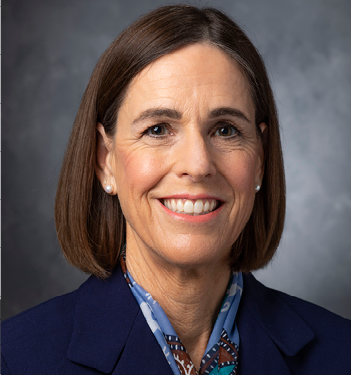Julie Luft, Athletic Association Professor, University of Georgia
 Any educator knows that content knowledge is important in teaching. In our work, we have been thinking about content knowledge as subject matter knowledge. For us, we see subject matter knowledge as knowledge in the discipline taught by a teacher. It often includes an understanding about how the discipline advances, along with what is known within the discipline. These areas are certainly intertwined because as inquiries are made, there is an advancement of knowledge.
Any educator knows that content knowledge is important in teaching. In our work, we have been thinking about content knowledge as subject matter knowledge. For us, we see subject matter knowledge as knowledge in the discipline taught by a teacher. It often includes an understanding about how the discipline advances, along with what is known within the discipline. These areas are certainly intertwined because as inquiries are made, there is an advancement of knowledge.
Our recent work has been focused on understanding what happens when a teacher doesn’t have enough subject matter knowledge. There are certainly different ways in which teachers are constrained in their subject matter knowledge. For instance, science educators have long known that elementary science teachers often don’t have an adequate science background. As generalists, they have typically taken a limited number of subject matter courses.
Another variation can be found among new science teachers. A new science teacher may have taken the required number of subject matter courses to teach a topic, and may even be certified in the assigned area of instruction. Yet when the teacher steps into the classroom, the knowledge the teacher needs to draw upon may not be adequate in representing the topic of instruction. It’s not that the teacher doesn’t have the knowledge; it’s that their knowledge may not be coherent or organized in a way to support an understanding of the course content. For instance, a biology teacher may be a specialist in cellular biology, but still required to teach ecology.
Another way in which science teachers are constrained in their subject matter instruction is when they are assigned to teach outside of their expertise. This phenomena is referred to as out-of-field teaching, and it is something that science educators should be concerned about. Teaching science out-of-field occurs when a science teacher is assigned to teach a course that is outside of his/her/their expertise. For instance, a biology teacher may hold a general science certificate, which can result in the teacher being assigned to teach a chemistry class. According to policy guidelines, the teacher is certified and in-field, but the teacher knows otherwise.
Unfortunately, we know little about the impact of out-of-field teaching on science teachers. Our recent study in this area revealed that new physical science teachers, who did not have adequate subject matter knowledge, struggled in their decisions about how to represent the content and how to consider student understanding. Furthermore, it was difficult for an early career out-of-field teacher to achieve the instructional proficiency of an early career in-field colleague.
There are many variations pertaining to out-of-field teaching. Exploring these variations was the focus of a DR-K12 Conference on out-of-field science teachers. Some of the studies shared at this conference will be highlighted in a forthcoming special issue in the Journal of Science Teacher Education on out-of-field teaching in science.
The Road Ahead
Over the years, science educators have been diligent in their efforts to enhance the subject matter knowledge of all science teachers. There are content courses for would-be science teachers in institutions of higher education, instructional materials that are educative, and professional development programs for teachers that help them build their subject matter knowledge for teaching. Educational researchers study how teachers best learn subject matter knowledge, and they explore how teachers translate subject matter knowledge into instruction (often referred to as pedagogical content knowledge)
Even with these initiatives and studies, science teachers are facing challenging times in terms of their subject matter knowledge. They are still learning how to implement the Next Generation Science Standards that redefines subject matter knowledge and includes engineering and mathematics. They are experiencing the rise of STEM schools, which looks towards more integrated views of subject matter knowledge. With STEM schools, teachers need subject matter knowledge in different areas in order to support the integrated vision of STEM. In addition, the school district context may also challenge the subject matter knowledge a teacher holds. Small districts may need to assign science teachers to teach outside of their expertise. Districts with high turnover may reassign teachers to new grade levels, which involves new subject matter knowledge.
In looking towards the future, there are important areas to consider when it comes to the subject matter knowledge of science teachers. Some areas that our research groups considers to be prevailing include:
- How can we better support the subject matter knowledge development of early career teachers? What should those in institutions of higher education do? What should be done in the first years of teaching?
- How can out-of-field teachers be supported to strengthen their subject matter knowledge?
- How does the subject matter knowledge of a teacher change over time? How do different factors support the development of subject matter knowledge that is conducive to science teaching?
---
Any opinions, findings, and conclusions or recommendations expressed are those of the author(s) and do not necessarily reflect the views of the National Science Foundation.